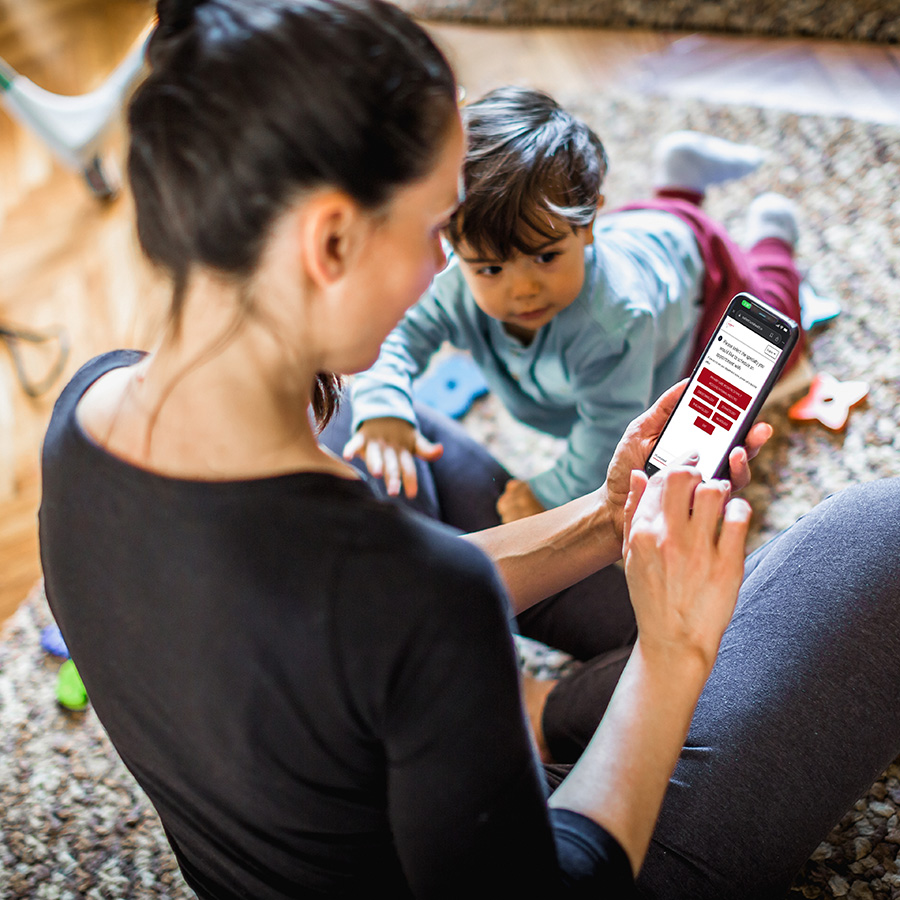With summertime winding down, the new school year is just around the corner. And beyond stocking up on school supplies, now is a great time to start getting your child (or children) ready for a healthy return to the classroom — and to offer them some guidance on avoiding any illnesses once they’re back.
To have your young one(s) as prepared as possible to achieve a sickness-free school year, consider passing along these seven health-related tips for the coming school year from the pediatric-care experts at Wilmington Health:
- Ensure vaccinations are up to date — Most states and school districts require a specific set of vaccinations for school entry. And while other vaccinations such as the flu shot may not be required, they could be a smart idea. Check with your school, your school district, or your pediatrician to see what vaccinations are mandatory for your child, and ask your pediatrician if he or she recommends any additional vaccinations beyond the required ones.
- Rein in the late bedtimes — In many families, summertime can see kids’ bedtimes get a little more flexible. And while getting a good night’s sleep is important for children year-round, it can be especially critical when headed back to school — which often means busier days and earlier mornings. In the weeks leading up to the first day of school, start getting back to more strict bedtimes, and try to limit the use of screens (which can cause trouble falling asleep for many children) just before bedtime.
Keep in mind that while most adults need 7 to 8 hours of sleep per night, children typically need more. Experts recommend that kids get the following amounts of sleep each night:
– 10-13 hours for preschoolers
– 9-11 hours for school-aged kids
– 8-10 hours for teenagers - Stress good hygiene habits — Germs can run rampant in the classroom, and one of the best ways to prevent the spread of germs and illness among schoolchildren is to encourage proper hand-washing throughout the day — and especially before meals, after using the bathroom and after recess. Make sure your kids have access to hand sanitizer and know to cover their coughs and sneezes with the crook of their elbow, as well. In addition, to help avoid the spread of lice, stress how important it is to avoid sharing combs, hairbrushes, hats and other hair accessories with other children.
- Take steps to alleviate anxiety — Whether it’s a social anxiety, separation anxiety, feeling pressured to get good grades or any other source of stress, it’s common for children to be anxious about returning to school. To help alleviate his or her back-to-school worries, see if you can plan and attend a school tour or an introduction to your kid’s teacher before classes start back to help him or her get acclimated to the new school year. Talk with your child regularly and listen to what he or she has to say, then provide encouragement and understanding. Further, try to develop ways to channel any stress such as by taking a family walk, playing a favorite game or pursuing a beloved hobby.
- Maintain a healthful diet — Eating well is important year-round, especially for growing children. But during the school year, eating healthy meals — and especially breakfast — takes on even more importance, as studies have shown that well-nourished children can stay more alert and more focused in the classroom. In addition, well-nourished and adequately rested children are better able to fight off infections than kids whose diets and sleep are lacking. Be sure to develop an understanding of what’s involved in healthy eating, and try to take steps toward maintaining a balanced diet.
- … and keep active — Because kids typically spend large portions of the school day sitting in a classroom, it’s important to ensure that they’re working sports and exercise into their routines during the school year. Not only can regular physical activity help keep them physically fit, but it can also help them stay focused in the classroom, as well as improve their attitude and behavior.
- If due, schedule a wellness exam — If your child is overdue for a wellness exam, the start of the school year is a great time to get one scheduled. Your child’s pediatrician can offer guidance on all the tips above and more, plus he or she can help ensure that your young one(s) start the school year on the right foot health-wise.
Remember, if you have a child that’s starting school, they need to have the appropriate health forms filled out in order to start Pre K or Kindergarten. If you still haven’t gotten your 4 or 5 year old’s health forms completed, Wilmington Health can help. Schedule a visit with us today and we’ll make sure your child has what they need to start the school year.
Seeking TRUE Care for your child? Wilmington Health has you covered
The pediatric care specialists in the Wilmington Health Pediatrics Department deliver convenient, compassionate care to children from birth to age 18. Services offered include well child care, acute/sick care, vaccinations and immunizations, and asthma care, along with an array of resources for new parents and guidance with the transition from pediatric to adult care.
To schedule an appointment with a Wilmington Health provider, contact the Pediatrics Department today.

